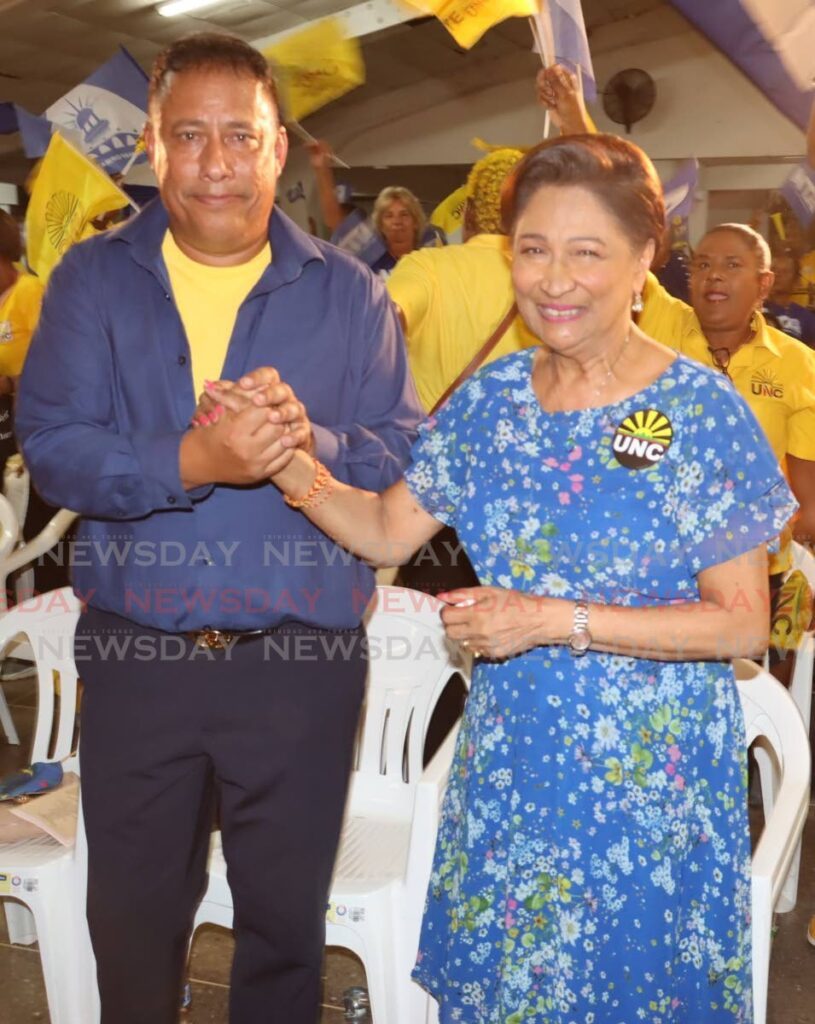NTA, UNC differ over guns in court

FORMER political allies, the National Transformation Alliance (NTA) and the Opposition UNC, have differed over the Judiciary's policy of excluding guns from courtrooms.
This policy has been in place since 2015.
In a statement on November 8, the Judiciary said a police officer went to the O’Meara Judicial Complex and, after refusing to comply with the rules, was refused entry.
The incident escalated and the officer threatened to arrest the court employee.
The Judiciary defended its policy.
“The Judiciary established a screening policy in July 2015, which is in keeping with international best practice for court buildings and is in keeping with security protocols in many sectors across Trinidad and Tobago and internationally where police officers must also be screened.”
In a statement on November 9, Opposition Leader Kamla Persad-Bissessar supported the TT Police Service Social Welfare Association's (TTPSSWA) objection to the policy.
She described it as the "height of hypocrisy," arguing it is unjust to leave police officers exposed to potential attacks without access to their guns, while judicial officers are fully protected and permitted to carry their weapons.
In a statement on November 10, NTA political leader Gary Griffith said Persad-Bissessar was wrong to take this position and to insert herself in this matter between the Judiciary and the TTPSSWA.
The former police commissioner and national security minister said, "No, Mrs Persad-Bissessar, two wrongs do not make a right, and making a decision based on hearsay could never be best practice."
While he believed Persad-Bissessar's comments might stem from a concern for the safety of police officers, Griffith said, "It is crucial that decisions on such matters be grounded in law, established facts, and best practices rather than assumptions.
"Even if it is the case, as she suggests, that other judicial officers are allowed absolute rights to enter courts with personal firearms, two wrongs do not make a right."
Griffith said a more constructive approach would be "to call for a clear review and equitable application of these rules for all individuals entering court, including judicial officers. A scenario where everyone has a firearm is more akin to a shooting range than a place of such high esteem."
Internationally, he said, courtrooms are designated firearm-free zones to ensure a secure, neutral space free from intimidation and unnecessary risk.
"This is a standard established for the safety and impartiality of judicial proceedings."
Griffith suggested Persad-Bissessar's comments might not have been based on her not being aware or properly advised of the facts.
He said Persad-Bissessar might not know the TTPSSWA was "seeking unrestricted access for all officers, which is unreasonable and a recipe for chaos."
Griffith explained, "When officers do need to carry firearms in court under unique circumstances, such as when accompanying high-risk prisoners, all the Commissioner of Police has to do is communicate with the Office of the Chief Justice, and permission will be granted."
He advised Persad-Bissessar, as someone with the legal title of senior counsel, not to be drawn into any contest between the Judiciary and the TTPSSWA and "avoid emotional responses or anecdotal justifications, as they do not align with the principles that govern our judicial system."
At a news conference in Chaguanas on November 10, Barataria/San Juan MP Saddam Hosein supported Persad-Bissessar's objection to the policy and called for the Judiciary to explain it.
Hosein claimed the policy breached the Firearms Act.
The NTA and UNC had an alliance for last August's local government elections which ended in a 7-7 tie between the PNM and UNC.
Griffith and Persad-Bissessar had a public falling-out in February, after Persad-Bissessar accused smaller parties like the NTA of piggybacking on the UNC's resources.

Comments
"NTA, UNC differ over guns in court"